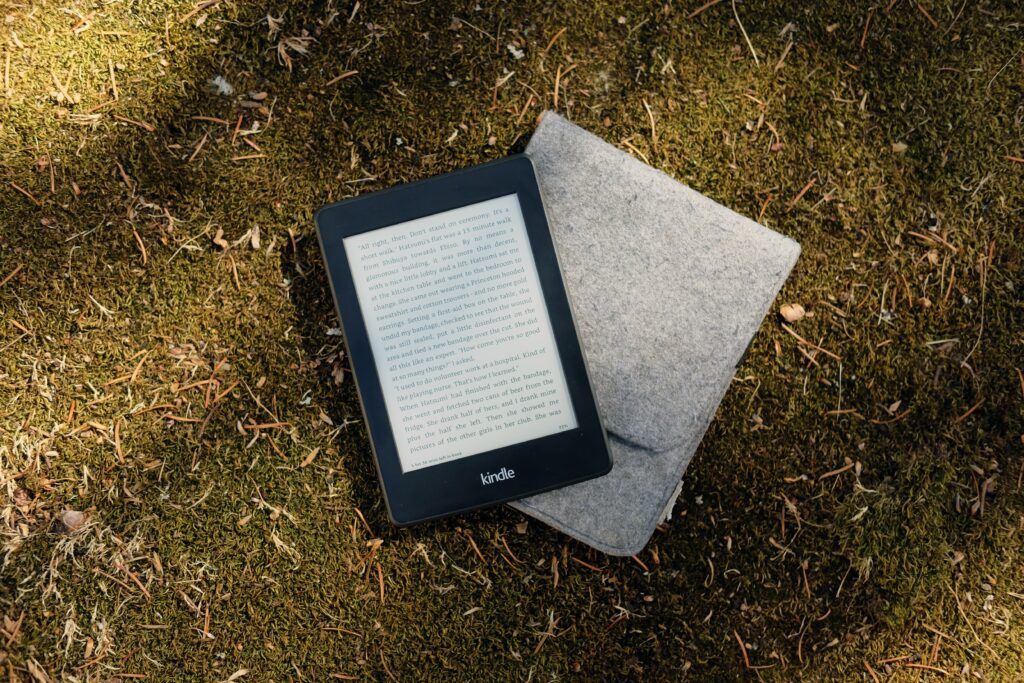Today’s world has modernized almost all possible aspects of our life, from smartphones to smart refrigerators to smart light bulbs and doors even. But the education system worldwide seemed to be the least tech-touched until a few years ago. We still learn with the same books, pen and paper like we used to 100 years ago. Except recently students have started using digital copies of books also known electronic books or e-books. The ease of availability of e-books on tablets or laptops or mobile devices make them a very attractive choice for students who often have to carry dozens of books. Let’s read about ‘Are Kindles Good For College Students?’.

Are Kindles Good For College Students?
Kindles are a very good reading solutions for those who are used to digital reading. You can have an entire library and then some at the palm of your hand, and many more just a tap away. While all this seem very convenient, a Kindle is not a one stop solution for everyone. Some people just prefer the touch of paper while they’re reading, Kindles have limitations like it having a battery means you have to charge your books, which sounds obnoxious.
Advantages of A Kindle
As college students, we all know the struggle of carrying around heavy textbooks from class to class. However, with the advent of technology, we now have a solution: Kindles. There are numerous advantages of using Kindles for college, including portability, affordability, and convenience.
Portability:
With a Kindle, you can carry an entire library of textbooks in your backpack without weighing yourself down. This is especially useful for students who have to commute long distances to campus or who have a lot of classes in different buildings.
Inexpensive in the long run:
College textbooks are notoriously expensive, and the costs can add up quickly over the course of a semester. A Kindle can save a significant amount of money on textbooks since digital are often much cheaper than their paperbacks, and you can also find many textbooks available for free on Amazon’s Kindle Store or other e-book retailers.
Instant Access to Millions of Books:
Kindles also offer the convenience of instant access. You can purchase and download textbooks right from your device, and you don’t have to wait for shipping or go to a physical store. This is especially helpful for students who procrastinate or who need to access a textbook at the last minute.
Smart Software Integrations:
In addition to being portable, affordable, and convenient, Kindles also offer unique features that can enhance your studying experience. For example, you can highlight and take notes on your textbooks without damaging the book or losing your place. This is especially helpful for students who like to review their notes regularly or who need to reference specific information later on.
Built-in Dictionary:
Kindles also have a built-in dictionary and thesaurus, which can be a huge help when reading complex texts. You can simply tap on a word to see its definition or synonyms, which can help you understand the material more easily. This feature can save you time and effort and can make studying more enjoyable.
Eco-Friendly:
Finally, Kindles are also eco-friendly. By using a Kindle, you’re not contributing to the demand for paper and ink used in traditional textbooks. This can have a positive impact on the environment and is something that many college students are conscious of. You can feel good about using a device that’s not only convenient and affordable but also environmentally friendly.
Drawbacks of using a Kindle
While Kindles may offer a variety of benefits for college students, there are also some disadvantages to consider before making the switch.
Battery Limitations:
Another potential disadvantage of using Kindles for college is the issue of battery life. While a single charge can last for several weeks with light use, students who frequently use their Kindles for reading and note-taking may find that the device needs to be charged more often. This can be a major inconvenience for students who are constantly on the go and may not have access to a power source.
Eye Strain:
Another issue to consider is that some students may find it difficult to adjust to reading from a screen. Unlike traditional textbooks, Kindles emit blue light, which can strain the eyes and lead to eye fatigue over time. While some newer models may offer features like adjustable lighting and eye protection, this is still something to consider before making the switch.
Demanding Initial Investments:
Finally, while Kindles may be more affordable than traditional textbooks in the long run, the initial investment in purchasing a device can be quite costly. While prices have come down over the years, students may still need to spend a significant amount of money on a device that they may only use for a few years.
The Technological Barrier:
One of the biggest disadvantages of using a Kindle for college is that it can be difficult to navigate complex texts. While the device does offer a built-in dictionary and thesaurus, some students find it challenging to flip between different sections of a textbook or easily reference diagrams and graphs. Additionally, some textbooks may not be available in e-book format, which means that students may still need to purchase physical copies of certain texts.
Conclusion
In conclusion, while Kindles offer many advantages for college students, there are also some disadvantages to consider. Students who struggle with navigating complex texts or who may find it difficult to adjust to reading from a screen may not benefit as much from using a Kindle. Additionally, the issue of battery life and the initial investment in purchasing a device may be prohibitive for some students. Ultimately, the decision of whether or not to use a Kindle for college will depend on a student’s individual needs and preferences.